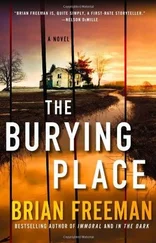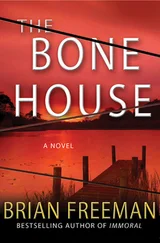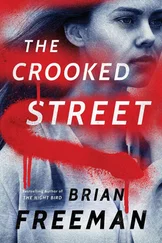Tish parked in an alley behind the Kitch, where it was dark except for a soft yellow glow from inside the club windows. A diagonal rain swept the street as she climbed out of her Civic. She unfolded an umbrella, held it at an angle like a flag, and splashed through the puddles in her heels around the corner of the building toward the high door. The four-story clubhouse towered above her, regal and imposing in red brick, like a rich man’s mansion. Hollow-eyed Indian gargoyles guarded the entrance and stared at her disapprovingly. By the time she slipped inside, her white dress was speckled with rain spots. She flipped her hair, and water sprayed onto the wine red carpet.
The sprawling main corridor was lined in dark wood and sconce lights and bore the club’s logo in gold on the floor. Tish took a few tentative steps, expecting someone to stop her. Instead, the hallway was empty. She had never been here before, but she remembered people talking about the Kitch the way people on the East Coast talked about Skull and Bones. The faces of members had changed in 125 years, but admission was still by invitation only. To Tish, it felt like a secret society for the privileged. A place built stone by stone on money and tradition.
On her left was a lounge with thick beams lining the ceiling and deep paisley carpet on the floor. A wood fire burned in a brick fireplace, and two leather recliners were carefully placed on either side of the hearth. She was cold from the rain, and she approached the fireplace, putting out her hands to warm them and feeling heat on her dress. As she dripped on the carpet, she noticed an oil painting on the west wall with a familiar face. It was an old man in a three-piece suit. His head was almost bald. He looked tough and prosperous. When she approached the portrait, she saw his name inscribed on a brass plate on the frame.
Randall Stanhope. Former president of the club.
“Can I help you?”
The voice came from behind her. Tish turned and saw a tuxedo-clad attendant in his fifties with a clipped mustache.
“I’m sorry,” Tish said. She squared her shoulders and gave the man an engaging smile. “I’m supposed to be meeting Peter Stanhope here. Can you tell me where to find him?”
She had no meeting scheduled. Peter hadn’t seen her in thirty years. But everyone told her that the Kitch was where he spent most of his evenings. Like his father.
“Mr. Stanhope is in the pool room downstairs,” he told her. “Would you like me to tell him you’re here?”
“No, I’ll just join him there.”
“Do you know the way?” the man asked.
“I’m afraid not.”
“Let me show you.”
The attendant led her downstairs, where the ceilings were lower and the walls felt as if they were closing in. Tish heard raucous male laughter. The pool room was smaller than she expected, with lapis color on the walls and in the checkerboard carpet. Half a dozen men in white shirts and loosened ties gathered around a pool table lined with burgundy felt. They drank scotch from crystal lowball glasses.
The conversation stopped when they saw her. Tish recognized Peter Stanhope immediately. He had a custom pool cue in his hand and was bent over, taking aim on a shot down the table. He was the only man still wearing a suit coat. She was close enough to smell the alcohol on his breath and see the overhead lights shining in his silver hair. As she watched, he struck the cue ball with a sharp crack and thunked the solid purple four ball into the far pocket.
“Mr. Stanhope?”
“Yes, George?” Peter asked. He looked past the attendant and sized up Tish.
“I believe you have a meeting with this woman.”
Peter straightened up and propped his cue against the table. He folded his arms and rubbed his sunburned chin with his left hand. His blue eyes twinkled with curiosity behind penny- colored glasses. “Do I?”
George’s smile evaporated. “Is there a problem?” he asked.
“I don’t know,” Peter replied pleasantly. He eyed Tish. “Is there?”
“My name is Tish Verdure,” she said quickly.
Tish heard a rumble of displeasure among the other men in the room. They knew who she was. Peter didn’t react, other than to flick his tongue quickly across his upper teeth. “Ah.”
“I was hoping we could talk.”
“I’m terribly sorry, Mr. Stanhope,” George said, stepping in front of Tish. “This woman told me she had a meeting scheduled with you. I’ll see her out immediately.”
Peter waved his hand. “No, no, it’s fine, George. I’ve been anxious to speak to Ms. Verdure, as it happens. Boys, carry on without me, all right?” He approached Tish and extended his hand. His grip was strong, and his fingers were smooth, except for the dust of pool chalk.
“Would you like a drink?” he asked her.
“Some red wine, I guess.”
“George, a bottle of the Alphonse Mellot pinot that I had last night, all right? Is anyone in 306 tonight?”
“No, sir.”
“Take it up there, will you?”
“Of course.”
Peter refilled his own tumbler from a half-empty bottle of Lagavulin and then took Tish’s arm by the elbow. “Shall we?”
He guided her to a turn-of-the-century elevator that was uncomfortably small. They were shoulder to shoulder. Peter didn’t say anything as they rode upward. He just smiled, showing beautifully white teeth, and smoothed down his hair. She noticed his eyes straying over her body. When the doors opened, he led her to a room painted in cream, with an off-white sofa, an armchair, and a square glass coffee table. Through a doorway, Tish saw a queen-sized bed with an elaborately flowered comforter. She backed up.
“This is a bedroom,” she said.
“A guest room,” Peter said. “Members outside the city stay here sometimes. Or men whose wives have kicked them out for the night. That’s why I prefer the single life.” He added, “Don’t worry, I’m not going to assault you, if that’s what you’re concerned about. I just thought we would both like some privacy.”
“Leave the door open.”
“Whatever you want.”
Peter took the armchair and worked on his drink. Tish sat uneasily on the sofa, her knees squeezed together. A few minutes later, George entered the room with a balloon-shaped wineglass and an open bottle. He set them on the table in front of her and poured, then gave her an imperious look and retreated from the room, closing the door behind him.
“Do you want me to open it again?” Peter asked, nodding at the door.
Tish shrugged.
“Well, here we are,” he continued. “It’s been a long time. You’re looking good, Tish. Do you mind if I call you that?”
Tish shrugged again.
“You were sexy then, and you haven’t lost your appeal,” he told her, his eyes roving. “Real beauty matures with age, don’t you think?”
“If you say so.”
“It wouldn’t kill you to repay the compliment,” he said.
“You know you look good, so why do you need to hear it from me?”
Peter laughed. “Try the wine, Tish. It’s excellent.”
Tish did, and it was.
“Are you trying to tell me you’ve changed?” she asked.
“We all change. You’re different, I’m different.”
“It doesn’t matter,” she said. “I don’t care who you are now or how much money you have. It’s what you did thirty years ago that concerns me.”
Peter nodded. “You think I murdered Laura. You think I took a baseball bat and beat her head in.”
“Yes, I do.”
“Well, I didn’t do that. How can I convince you I’m telling the truth?”
Tish took another drink of wine. It was fruity and light as helium. “You can’t. I already know you lied back then.”
“Oh?”
“Finn Mathisen saw you,” Tish snapped. “He saw you attack Laura in the field. The black man, Dada, he saved her. When Laura ran off, the bat was still in the field. It was still with you.”
Читать дальше












